Welcome!
We interact with information technology which aims to adapt to our needs and guide our decision-making at work and life. However, this adaptation is usually a black box, and little is known about the underlying effects on humans. Following an Open Science approach, we aim at understanding and designing hybrid adaptive systems (as a combination of social and technological elements). We study how individuals, teams, and organizations interact with adaptive IT systems in the areas of work and life. In particular, we focus on working from home and virtual collaboration in daily life.
The research in the Future Field III project is organized in two major blocks:
-
The research in the Future Field III project is carried out by an interdisciplinary team of principle investigators (PIs) from management, economics, psychology, ergonomics, sports science, computer science, and information systems. It involves PIs from 8 different KIT research institutes: AIFB, CIN, ECON, IBU, ifab, IfSS, TM, and WIN. .Our research covers principal investigator (PI) projects and an interdisciplinary study.
-
We follow a unique Open Science approach for researching hybrid adaptive systems and aim establishing an Open Science Portal focusing on human subject research.
KIT Future Fields are part of the university of excellence measure and specifically supports scientists at KIT who are pursuing highly innovative, high-risk projects at the frontiers of science and at the interface between disciplines which are expected to give rise to scientific breakthroughs. KIT Future Fields will expand flexibility in science and help to improve the boundary conditions for conducting major coordinated research projects.
The interdisciplinary Future Field III "Hybrid Adaptive Systems" project runs from October 2023 to September 2025 and is funded by the Federal Ministry of Education and Research (BMBF) and the Baden-Württemberg Ministry of Science as part of the Excellence Strategy of the German Federal and State Governments.

KIT hosted the 1st “Human Subject Research for Impact” Symposium, bringing together researchers from across disciplines to discuss how human subject research can be advanced responsibly and with impact.
The event marked the launch of the Human Subject Research Hub (HSR Hub), which will serve as the academic backbone at KIT for advancing knowledge and processes in human subject research, as well as the conclusion of the Future Field III project on Decision-Making in Hybrid Adaptive Systems.
A central highlight of the symposium was the keynote by Prof. Achim Wambach, PhD, President of ZEW, entitled “Attention, Overconfidence and Trust – Shaping Markets and Organisations through Co-design”. His presentation provided powerful insights into behavioral mechanisms shaping markets and organizations and demonstrated the value of human subject research for impactful research.
The symposium underscored the importance of interdisciplinary collaboration and open science and set a strong foundation for developing human subject research at KIT.
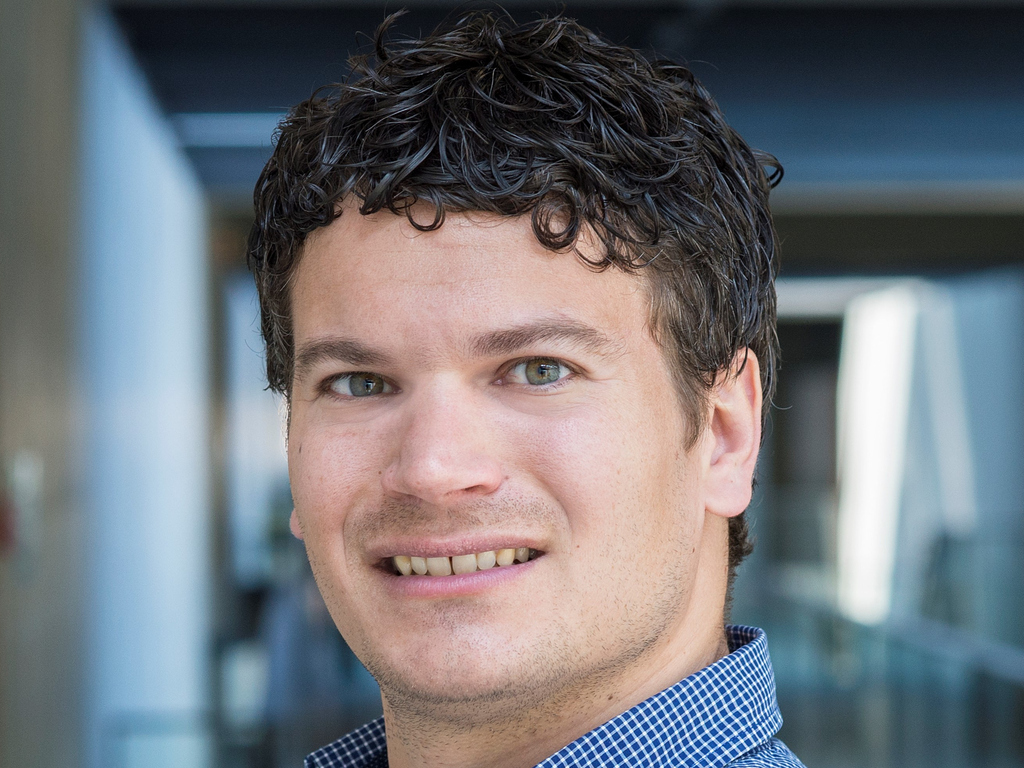
Who wants Power? Measuring Intrinsic Preferences for Power and their Behavioral Signature
People seek positions of influence for material objectives, but it has been argued that people also seek power for its own sake. We propose a novel elicitation strategy that allows us to measure intrinsic preferences for power, where power is defined as influence over the outcomes of others, while fully controlling for all consequentialist sources of utility. We establish the existence of such preferences in general population samples in six countries, with substantial heterogeneity across individuals. Examining this heterogeneity, we show that our behavioral measure of intrinsic preferences for power is positively associated with favorable views of authoritarianism and higher social dominance orientation, and serves as a predictor of political attitudes. We also find significant correlations between intrinsic preferences for power and distributional preferences: Intrinsic preferences for power are predictive of a lower regard for equality. Our evidence thus suggests that the attitudes and preferences of individuals that are motivated by the exercise of power for its own sake differ in systematic ways from those that are not.
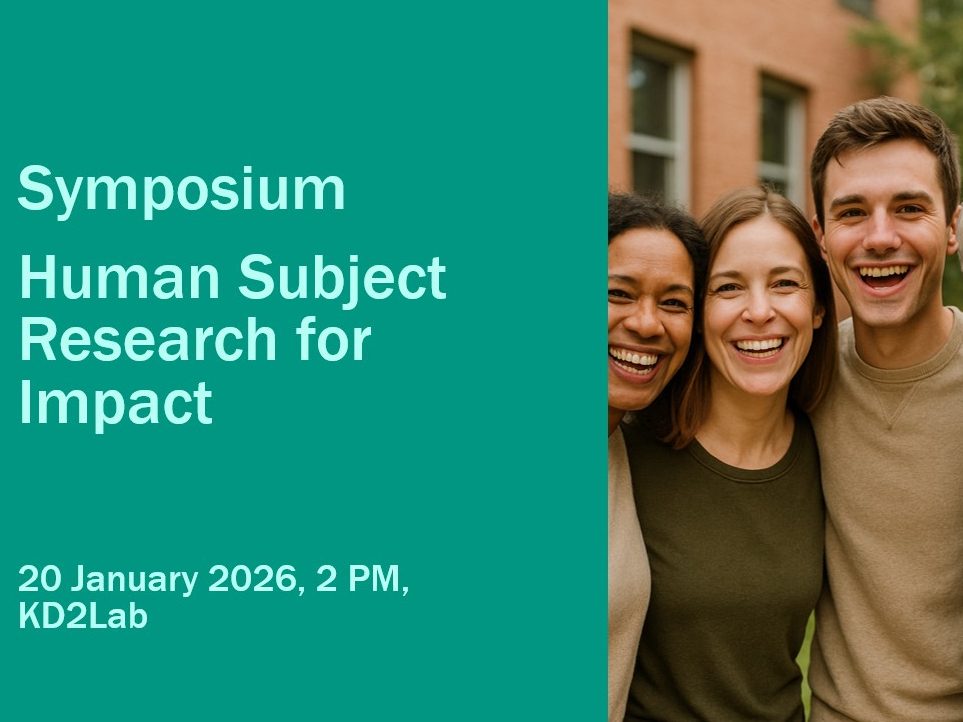
Human subject research is rapidly expanding across KIT, from mobility and energy to information systems, workplace design, and everyday life. While it enables science with real-world impact, it also brings significant methodological and organizational challenges.
Join us for the 1st “Human Subject Research for Impact” symposium at KIT, a special event that brings together two KIT-funded projects on Human Subject Research: the launch of the Human Subject Research Hub (HSR Hub) strategy funds project and the closing celebration of the Future Field III project “Decision-Making in Hybrid Adaptive Systems for Better Work and Life – An Open Science Approach”.
Register for the symposium via the following link.
More
The Economics of Attention
On November 10th at 02:00 PM, we had the pleasure to welcome Prof. Dr. George Loewenstein in our Speaker Series on Decision and Design at the KD²Lab. In this talk, he presented how the way we direct our attention influences not only our economic decisions but also our overall sense of well-being.
Prof. George Loewenstein introduced the concept of attention-based utility, which extends traditional economic thinking by emphasizing that an individual’s well-being depends not only on their external circumstances but also on what they choose to focus on—be it their environment, internal states, or memories. This framework provides a bridge between psychology and economics, illustrating how mental focus acts as an invisible driver of preferences and satisfaction. Drawing on a field study and three controlled experiments, the talk will present empirical evidence showing how investor attention is shaped by hedonic factors, such as emotional states and momentary pleasures. These findings shed light on why individuals and markets may react to information in ways that deviate from purely rational models.
More
Group decision making: An experimental comparison of multilateral bargaining models
On November 4th, we welcomed Prof. Ben Greiner from the Wirtschaftsinstitut Wien in our Speaker Series on Decision and Design at the KD²Lab. His talk explored how well theoretical models capture group decision outcomes in controlled experiments.
Prof. Greiner’s research investigates how theoretical models of multilateral bargaining align with actual group decision outcomes. In his talk, he compares the models of Banks & Duggan (2000) and Compte & Jehiel (2010), examining how differences in proposal generation—strategic versus random—shape group dynamics. Drawing on experimental evidence from groups of five under varying decision rules and time constraints, the study finds that both models struggle to predict outcomes accurately. Instead, decisions tend to reflect the preferences of the median group member, while more extreme opinions are largely disregarded.
More
Rethinking User Experience in Human-Centered AI: Designing for Reflective Decision-Making
It was a pleasure to host Dr. Pierre-Majorique Léger as part of our Speaker Series on September 12th at 10:00 AM.
Dr. Pierre-Majorique Léger is a researcher, inventor, and entrepreneur. He is a Full Professor at HEC Montréal, where he holds the User Experience Chair. He is the Director of ERPsim Lab and is the principal inventor of ERPsim, a simulation game designed to teach ERP concepts. This innovative tool is used by over 50,000 students annually across more than 300 universities worldwide and by thousands of organizations through Baton Simulation, which he co-founded. He is also the Co-director of Tech3Lab, a research laboratory in human-computer interaction where he conduct UX research for major organization such as Quebecor, Videotron, Sobeys, Desjardins, National Bank, CAE, CN, EssilorLuxottica, Radio-Canada and Deloitte.
More
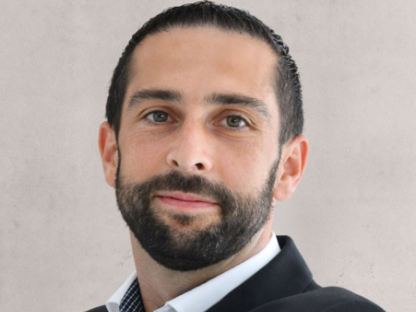
A Time to Risk, a Time to Play It Safe: How Top Managers Navigate Business Model Innovation
On July 22nd we were delighted to host Dr. Matthias Unfried from NIM as part of our Speaker Series on Decision and Design at the KD²Lab.
Business model innovation (BMI) is a critical mechanism for achieving competitive advantage, yet the cognitive factors shaping executives’ decisions to pursue it remain underexplored. We examine how perceived opportunities and threats, prior BMI experience, and temporal orientation influence BMI. Drawing on a behavioral experiment with 400 senior executives from Forbes 2000 firms, we find that perceived threats and prior failures reduce the likelihood of pursuing BMI. Temporal orientation moderates these effects: past-focused top managers are less likely to pursue BMI after failure, whereas a future orientation mitigates this effect. These findings extend behavioral theory of the firm and threat rigidity theory by incorporating temporal cognition as a key antecedent of strategic decision-making and offers insights into how executives evaluate BMI under risk and uncertainty.
More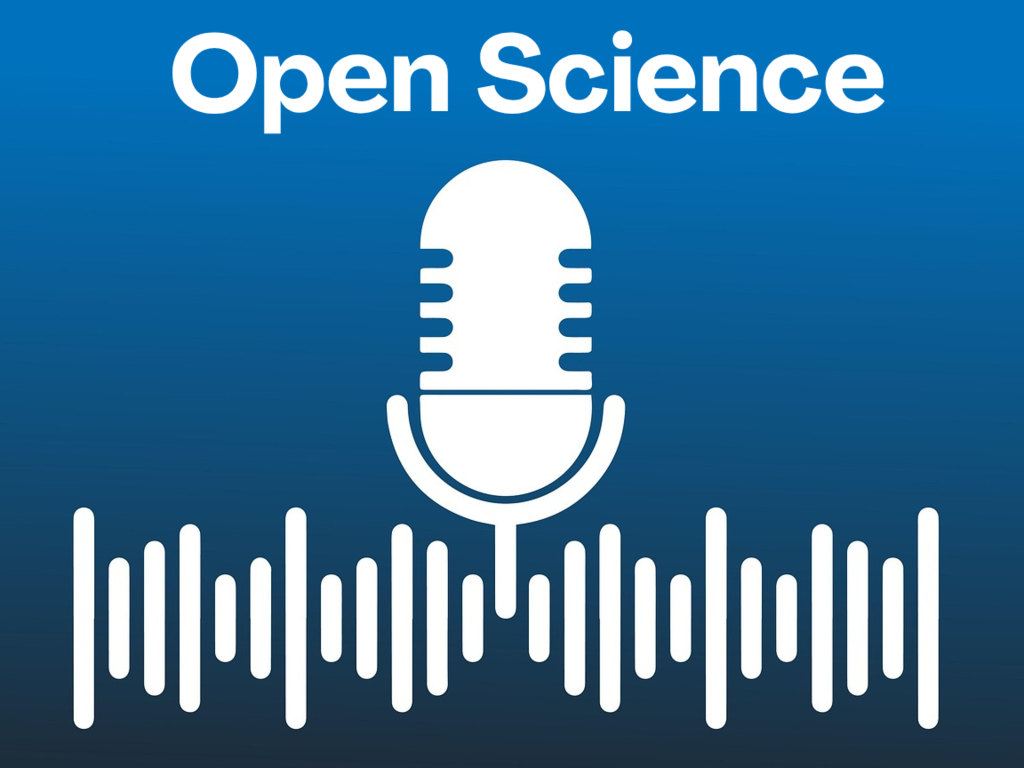
Fostering Open Science Frameworks
Petra Nieken was recently invited as a guest on the ARRTI Podcast “ELSI im Gespräch: Der Podcast zu Ethical, Legal and Social Implications (ELSI) in der Forschung” to discuss the promises and responsibilities of Open Science. The podcast episode explores key ethical, legal, and societal questions surrounding the open science movement — from scientific integrity and fair data access to the challenges of intellectual property.
Now available on the ARRTI website and on Spotify!
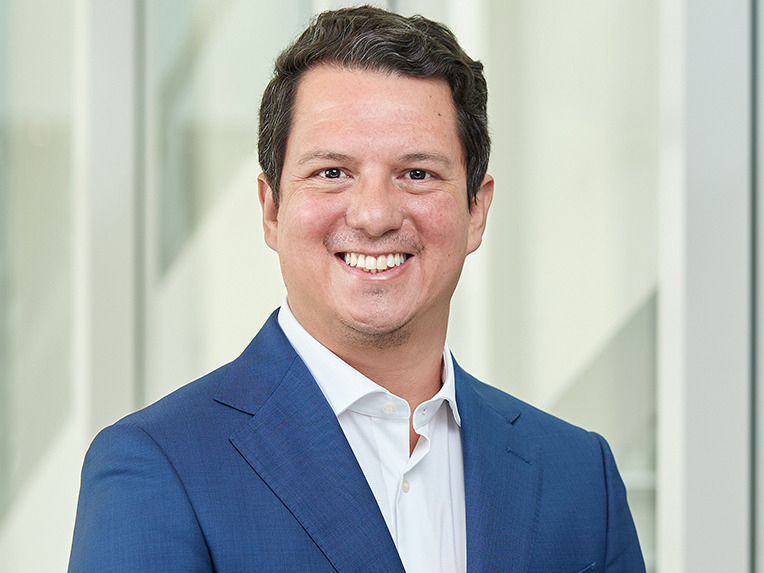
Shifting Attention, shifting outcomes: using salience nudges to debias access to opportunities within organizations
It was a pleasure to host Dr. Manu Munoz from Luxembourg Institute of Socio-Economic Research on July 1st as part of our Speaker Series on Decision and Design at the KD²Lab.
His talk focused on exploring a subtle and non-coercive method—called a salience nudge—to address bias in organizational decision-making processes. Rather than imposing strict affirmative action policies, the approach gently reminded decision-makers not to overlook talented individuals from low-status backgrounds. Dr. Manu Munoz presented findings from a natural field experiment within an organization, where nominators for a prestigious training program were randomly assigned to either a control group or a treatment group that received the salience nudge. The nudge significantly increased the nomination rate of low-status candidates—from 23% to 31%—bringing representation in line with their actual presence in the organization without causing backlash or lowering nominee quality. A follow-up study confirmed that the effect was driven by increased salience rather than external pressure or attempts to debias.
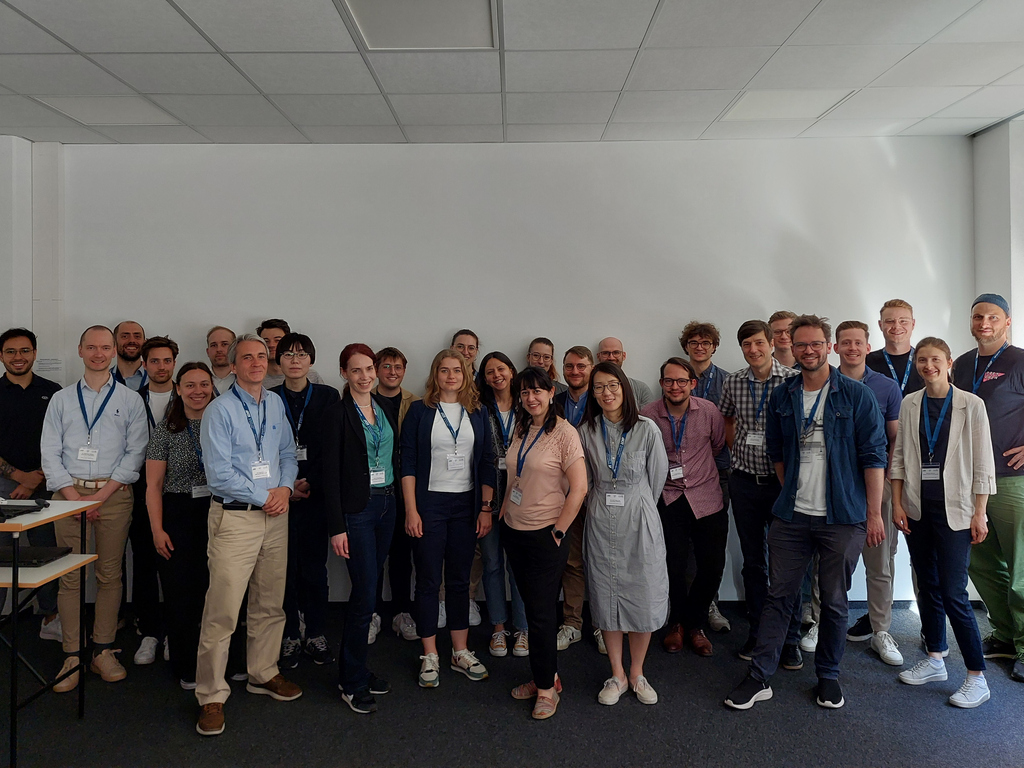
What Happens When Design Meets Decision-Making? Reflections on Gender, Diversity & AI at KIT!
We’ve just wrapped up the third annual Gender in Adaptive Design workshop at KIT, and once again, it sparked powerful conversations at the intersection of technology, behavior, and society. From challenging assumptions to opening up new ways of thinking, we explored how gender, diversity, and AI intersect, grounded in perspectives from behavioral economics and information systems.
A huge thank you to everyone who joined us – your energy, openness, and insights made this workshop truly special. Special appreciation goes to our keynote speaker, Brice Corgnet, whose talk “In Bot We Trust: Should We Let Machines Make Critical Decisions?” sparked deep discussion and fresh research ideas. And heartfelt thanks to Brice Corgnet and Zahra Murad for generously sharing their journeys across academic systems in different countries, offering invaluable insights for our young researchers just beginning theirs.
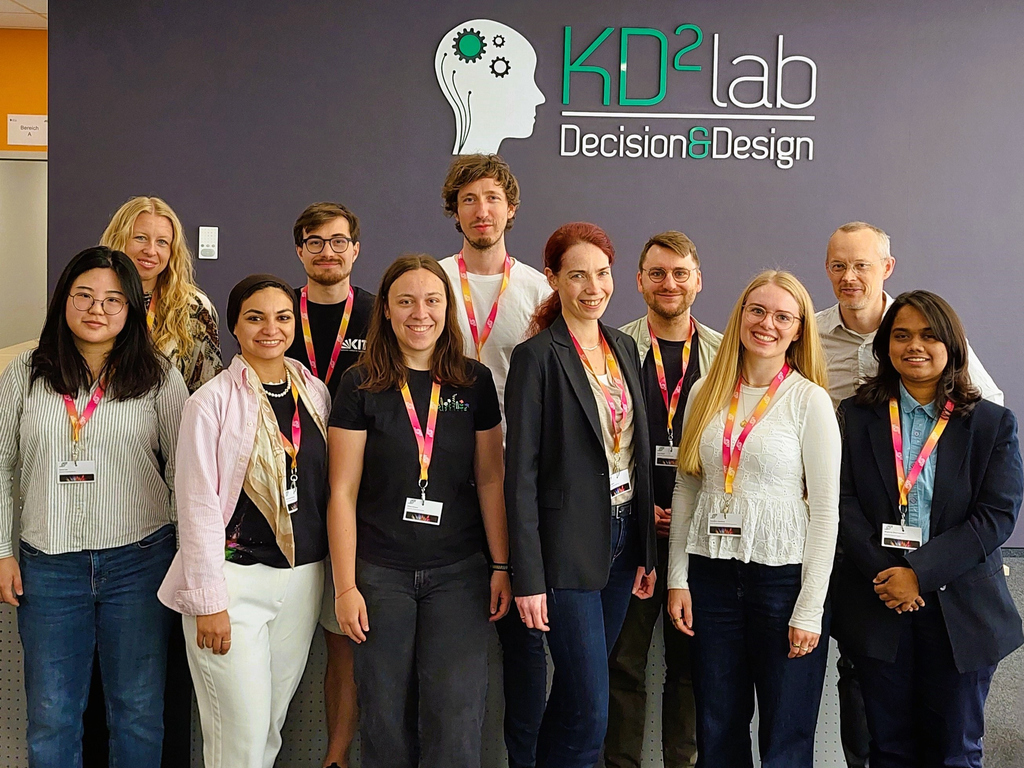
Celebrating 200 Years of KIT at the Karlsruhe Decision and Design Lab
What a fantastic day at the Tag der offenen Tür at KIT, and what an honor to open the doors of the KD²Lab to the public as part of KIT’s 200-year anniversary celebration!
We had the pleasure of presenting our work on the Future Field Project “Hybrid Adaptive Systems for Better Work and Life”, exploring how intelligent, human-centered technologies can shape the future of work and well-being.
It was incredibly inspiring to see how many curious, thoughtful, and engaged citizens joined us, asked questions, and took a real interest in our research. This kind of exchange is what makes science meaningful and impactful.
Let’s keep building bridges between science and society: here’s to the next 200 years of research at KIT!
_cut_rdax_98p.jpg)
Electronic Markets has published the paper "Engaging Citizen Scientists: Designing an Open Research System for Collaborative Problem Exploration". The paper is co-authored by Michael Gau (University of Liechtenstein), Anke Greif-Winzrieth (KIT), Christof Weinhardt (KIT), Alexander Maedche (KIT), and Jan vom Brocke (University of Münster).
More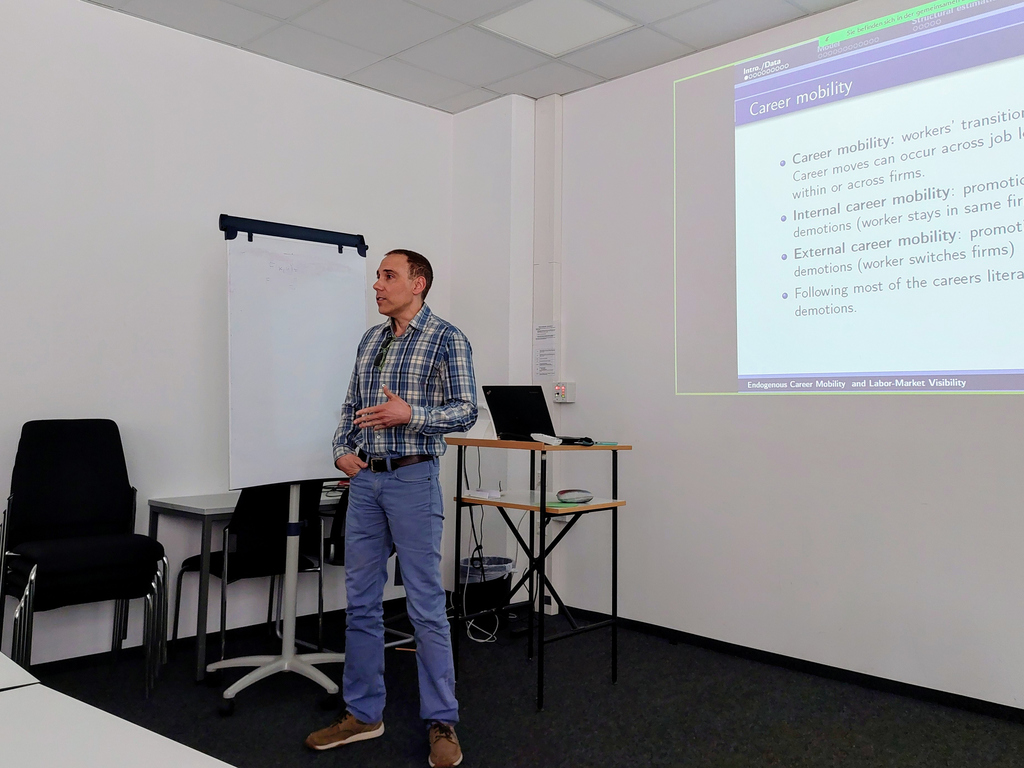
What Drives Career Moves? Insights from Labor Market Modeling
Just wrapped up a thought-provoking seminar at KD²Lab with Prof. Dr. Jed DeVaro from California State University, East Bay! Jed presented his latest research on "Endogenous Career Mobility and Labor-Market Visibility", offering deep insights into how promotions, lateral career moves, and wage dynamics unfold in real-world labor markets. The paper is joint work with Oliver Gürtler, Antti Kauhanen and Joseph Kuehn.
A big thank you to Jed for sharing his work and to all who joined us for the discussion!
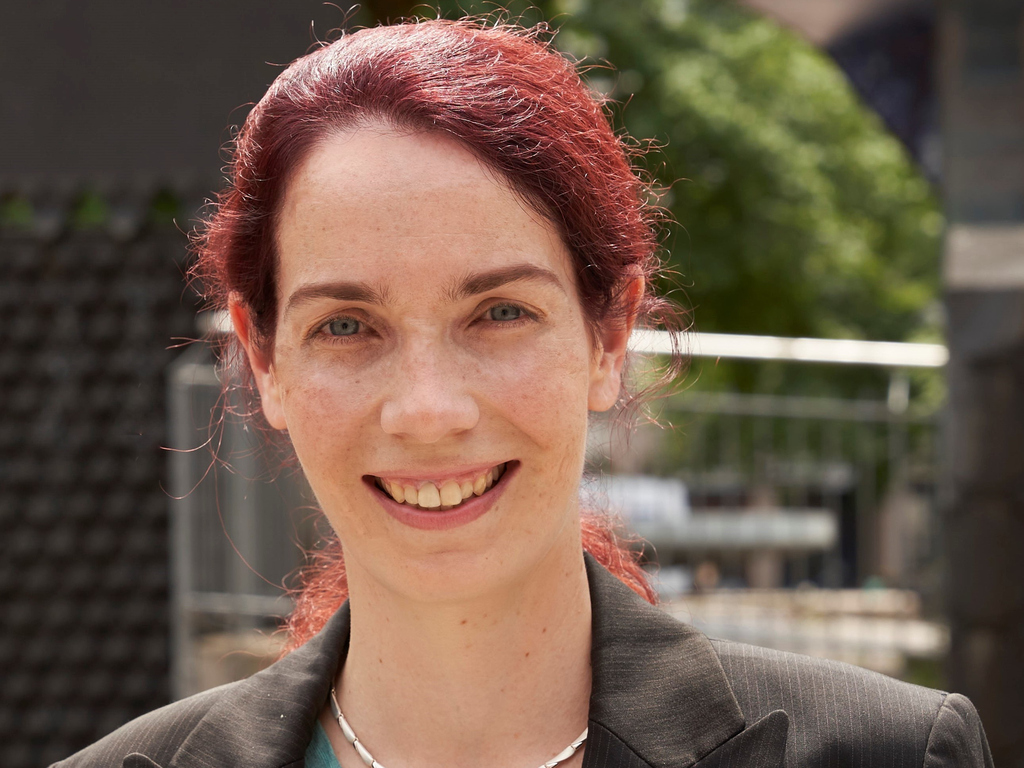
Petra Nieken has co-authored a new study, “Where Do I Belong? Prospective Relative Performance Information under High- and Low-Performing Reference Groups,” with Anna Ressi (WHU – Otto Beisheim School of Management), published in The Accounting Review. The paper explores how relative performance information shapes motivation and behavior when employees are compared to different reference groups.
Key insights from the study:
- People adjust performance to fit group norms
- Feeling out of place can lower motivation
- Choosing your peer group can drive ambition
Find the full study here!
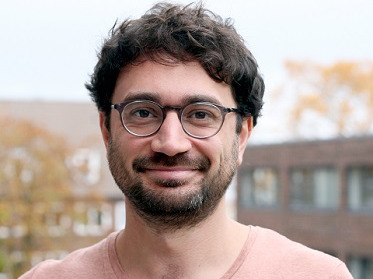
How Can We Make Science More Reliable? Lab² Might Have the Answer.
We were thrilled to host Levent Neyse from Berlin at KD²Lab!
He introduced us to Lab², a fascinating initiative tackling the replicability crisis through large-scale collaborations like Many-Labs and Many-Analysts. From testing how research decisions are made to promoting transparency and rigor, Lab² is redefining how we think about science.
A big thank you to Levent for the inspiring talk and for advancing the credibility of scientific research. We’re looking forward to potential future collaborations!
Levent Neyse | IZA - Institute of Labor Economics
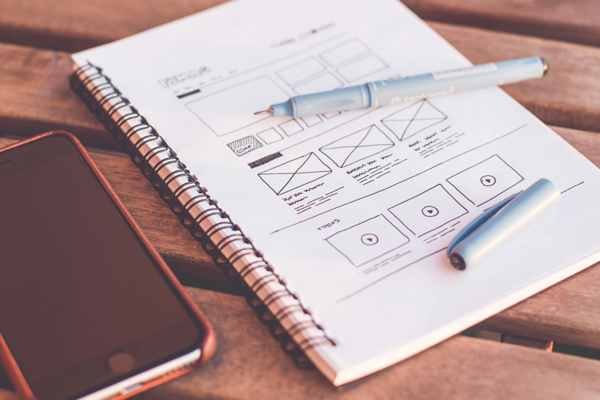
As part of the Girls’ Day 2025, the workshop ”App Development Made Easy” provided insights into the emerging field of processing and analyzing biosignals captured by sensors from mainstream mobile apps to recognize emotions and design emotion-adaptive apps for daily life of students. The workshop was offered by PhD students from the KIT Institute for Information Systems (WIN) https://www.win.kit.edu). The workshop took place in the Karlsruher Decision And Design Laboratory (kd2lab) (https://www.kd2lab.kit.edu) in tight collaboration with the DFG-funded hashtag#KD2School (https://kd2school.info) and the KIT Future Field 3 „Hybrid Adaptive Systems" (https://lnkd.in/eiy2-ZF8).
Further information is available here: https://lnkd.in/eySCBp67

Social-cue as Nudge to Deter Workplace Sabotage
As part of the "Decision & Design" speaker series organized by Future Field III, Prof. Dr. Subhasish Modak Chowdhury from University of Sheffield (UK) gave a presentation on his recent research on March 18th at 11.30 AM. The lecture took place at KD2Lab and was open to the public. Further information is available at the following link: https://haps.kd2lab.kit.edu/64_178.php
More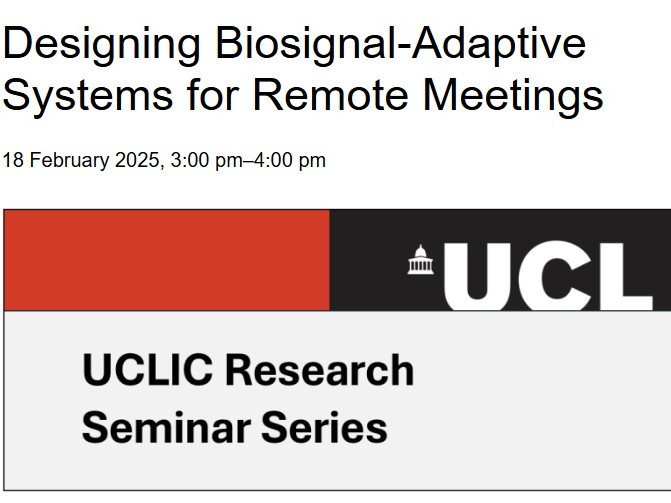
Prof. Maedche gave a talk on February 18th, 2025 at the University College London Interaction Centre (UCLIC) on Biosignal-Adaptive Systems with a particular focus on supporting remote meetings. Remote meetings as a modern way of work are widespread due to distributed team setups. While there are various benefits in terms of time savings, reduced travel costs and emissions, there are also negative outcomes such as a lack of engagement or increased fatigue. Biosignal-adaptive systems that dynamically adapt to users represent a promising solution to improve remote meetings. As part of this talk, Prof. Maedche presented selected results from research about this exciting topic carried out within the DFG-funded graduate school KD2School and the KIT Future Field III project on Hybrid Adaptive Systems.
More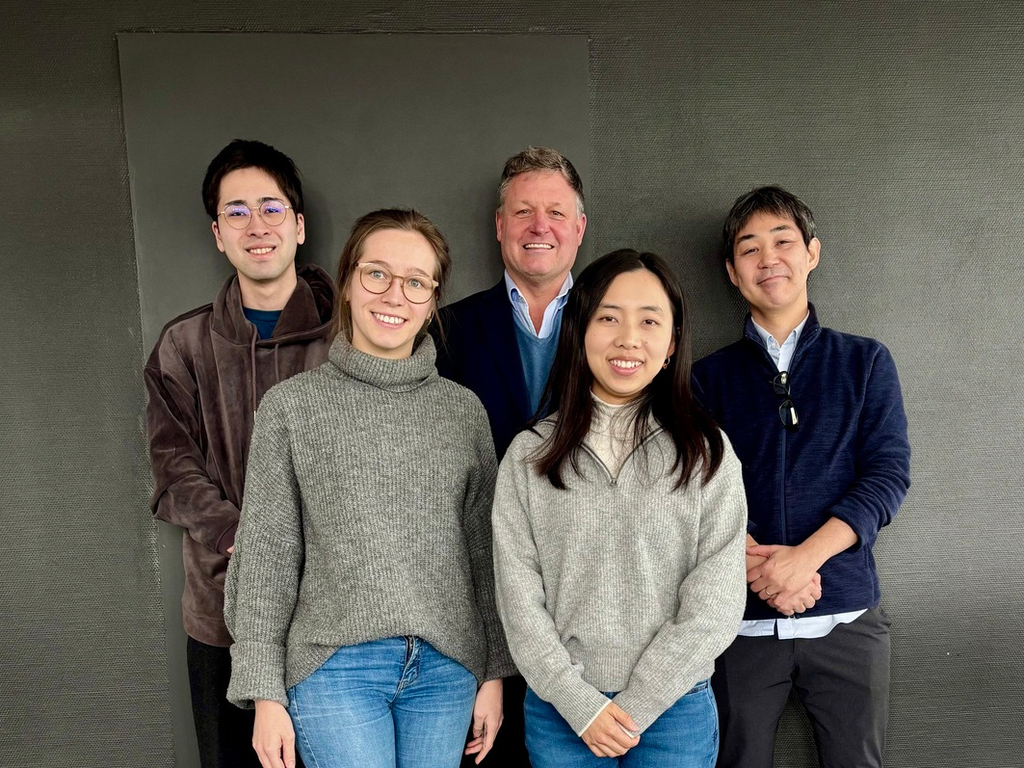
This week, we had the pleasure of welcoming the team from the Cognitive Systems Engineering Lab (Prof. Taro KANNO, Yingting CHEN) of the University of Tokyo back to KIT—nearly half a year after their last visit. During their stay, we held several meetings to discuss ongoing research projects and explore new collaboration opportunities. In addition to these discussions, we conducted design workshops on the future of team work and AI as part of our collaborative study, further strengthening our exchange in the fields of human-centered and adaptive systems. Stay tuned for the results!
More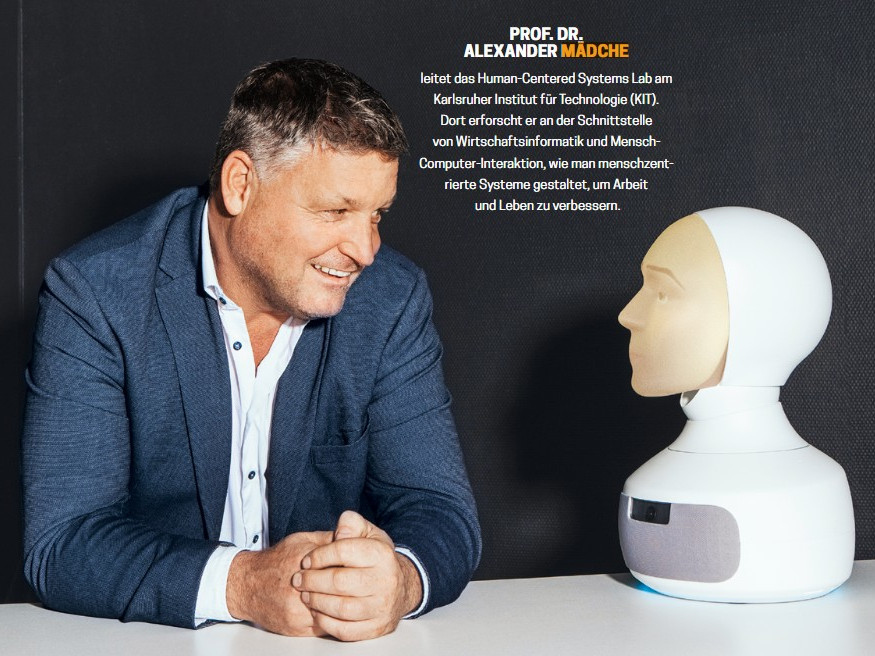
The aim of the Health Knowledge Foundation is to encourage people to become co-creators of their health. To this end, the foundation provides information on health topics. In an interview, Prof. Mädche provides insights on current research at the human-centered systems lab on personalization and adaptive systems. He emphasizes the importance of personalization in the context of health information that is delivered through information systems. The interview is available in the current brochure “kompetent”
More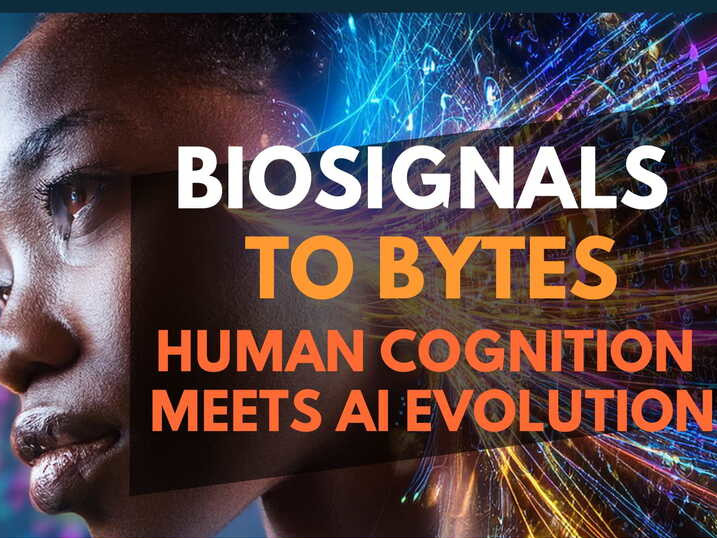
The KD2School Adaptive Systems Talks are an open-to-the-public Christmas event hosted by the KD2School. This year’s topic is:
Biosignals to Bytes – Human Cognition Meets AI Evolution
Featuring talks from Prof. Kopp (University of Bielefeld), Prof. Wilson (University of Nottingham), and Dr. Debus (KIT), a panel discussion, poster slam, and interactive demonstrations.
More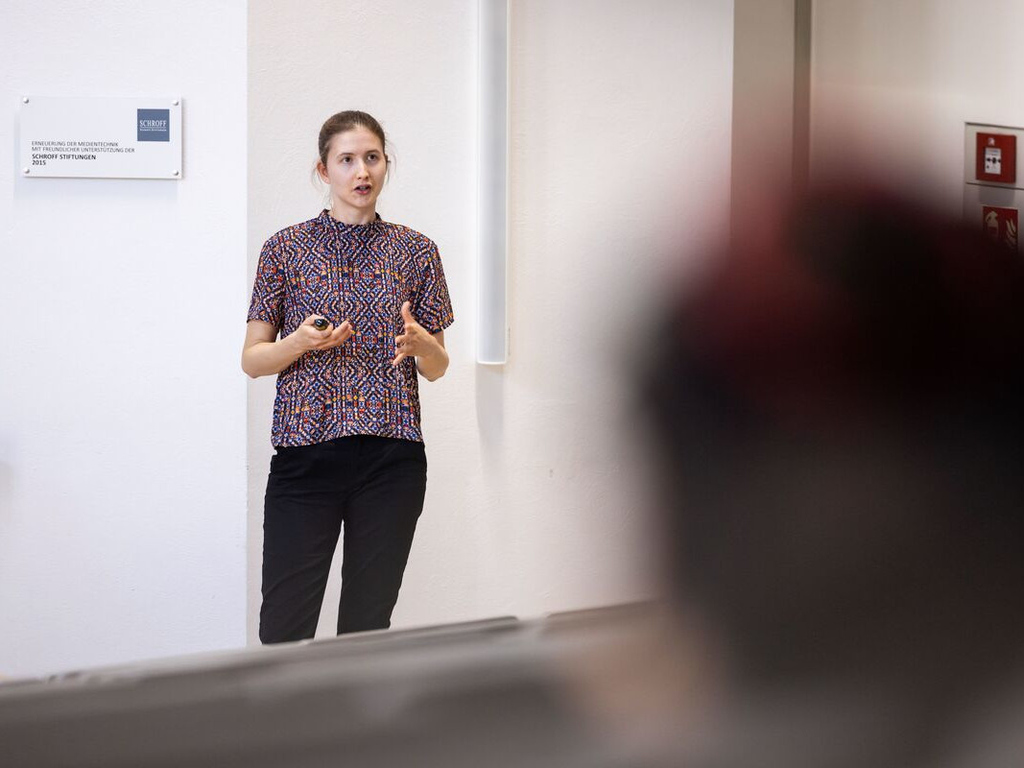
On July 17, the Dialog Day took place at KIT. It was dedicated to the topic of “Openness and transparency in economics and management” and offered a varied program with numerous opportunities for exchange. Among other things, the participants were able to gain exciting insights into current research projects of our scientific staff. As part of the Young Researcher Talks, Michelle Hörrmann presented the new “Open Science for Human Subjects Research” portal, which will in the future include an Open Science Onboarding Course for researchers at KIT.
More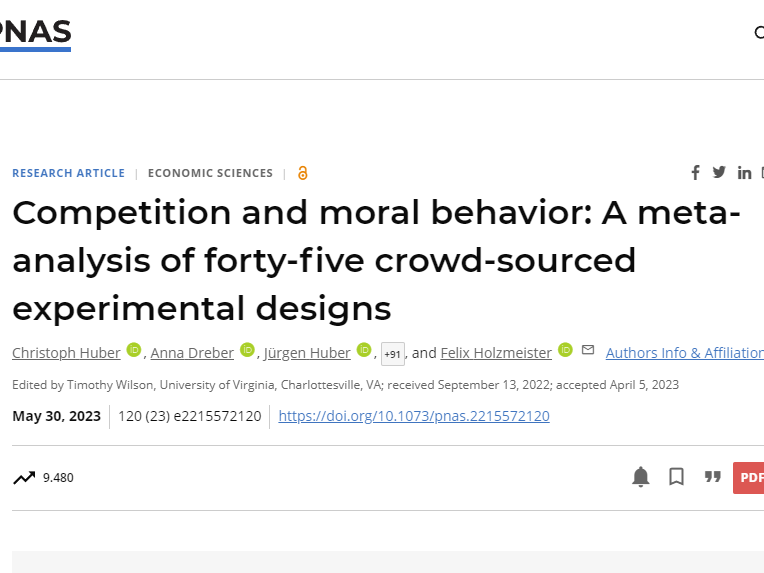
The Proceedings of the National Academy of Sciences (PNAS), , a peer reviewed journal of the National Academy of Sciences (NAS), has published a new article titled “Competition and moral behavior: A meta-analysis of forty-five crowd-sourced experimental designs” co-authored by Petra Nieken. The study follows a rigor and innovative open science paradigm: Independent research teams were invited to contribute experimental designs to a crowd-sourced project. In a large-scale online data collection, 18,123 experimental participants were randomly allocated to 45 randomly selected experimental designs out of 95 submitted designs.
More